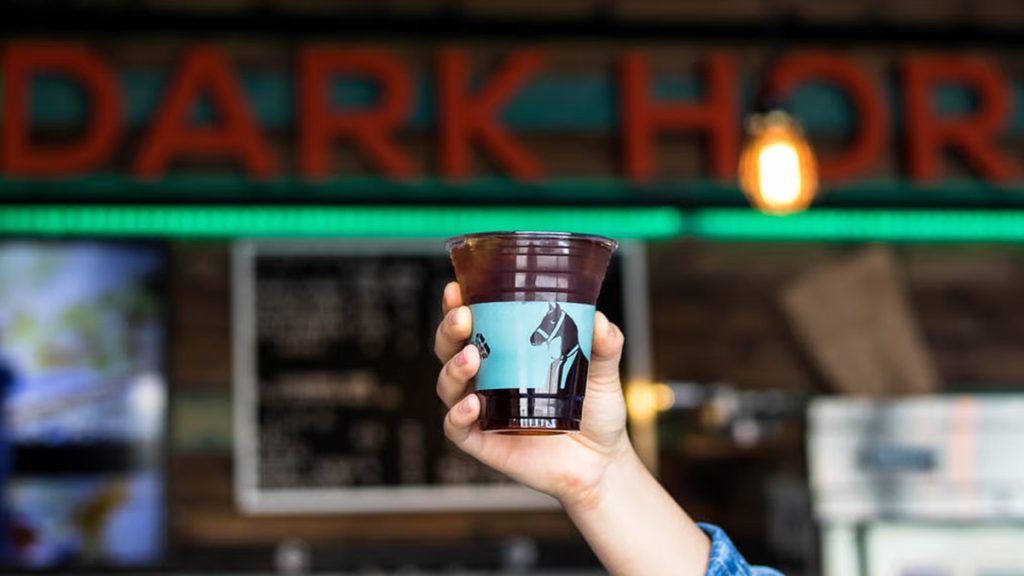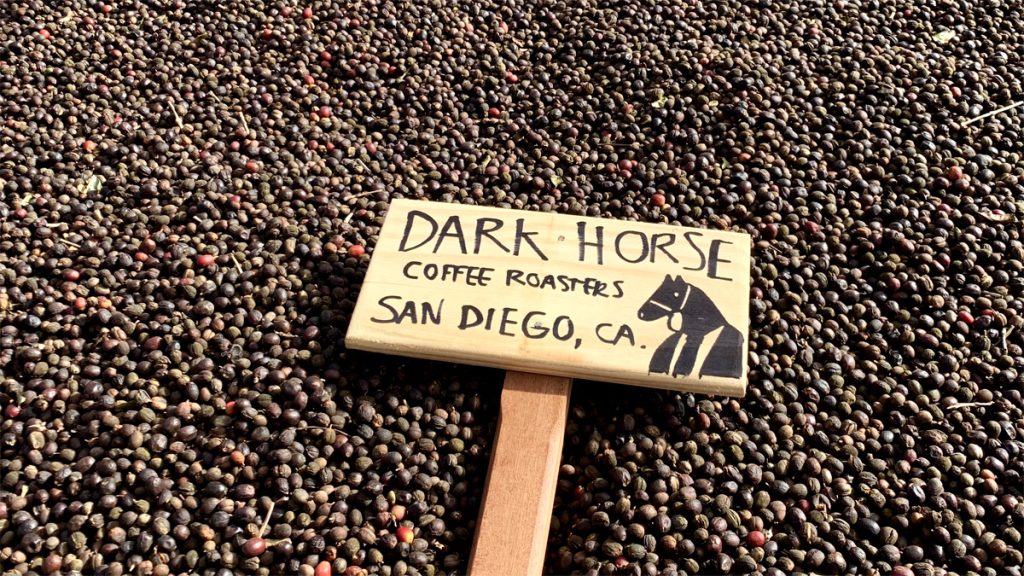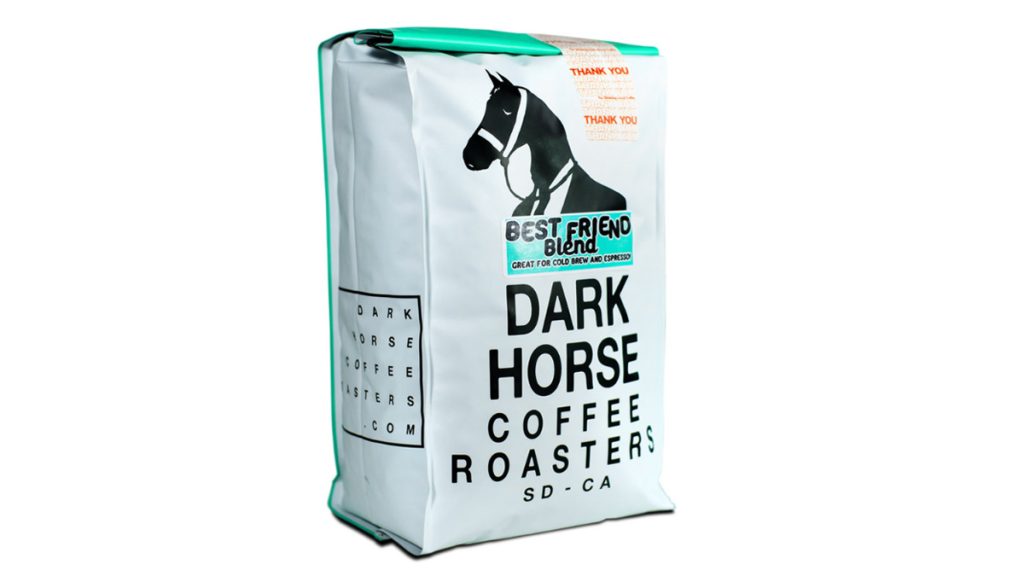Brazilian Coffee Beans With Dark Horse Coffee

From resplendent rainforests to vibrant Carnaval celebrations, Brazil is a country rich with one-of-a-kind attractions that can tantalize any global traveler. But you don’t always have to hop on a plane to experience the wonders of this unique South American destination—especially when it comes to coffee.
Available throughout the world, Brazilian coffee is one of the most popular options to fill a morning mug. While the specific tasting experience can vary depending on the growing region, Brazil coffee beans generally offer a soothing combination of sweetness, smoothness, and low acidity. These roasts are known for their nutty and chocolate notes that can be just as delightful served black or with a splash of milk and sugar.
If you like caffeine to come with a comforting set of flavors, here are a few interesting things to know about Brazilian “cafezinho” and how you can get your hands on the world’s best roasts.
Table of Contents
What are Brazilian Coffee Beans?

Like many popular global varieties, coffee beans from Brazil deliver a variety of flavor profiles based on diverse growing environments throughout the country. However, Brazilian growers also produce an assorted mix of bean types—a factor that can also impact the taste.
For the most part, these beans fall into the standard Arabica category—a sweeter plant species that delivers a smoother experience. A smaller percentage of Brazilian beans are Robusta—a coffee plant species that heightens the bitterness and nuttiness of the drink. Some also grow crossbred options to deliver the best of both worlds.
Where to Buy the Best Brazilian Coffee
Consumers can find Brazilian coffee in grocery stores and from major online retailers. However, these stores are typically stocked with roasts that are mass-produced for quantity—not quality. For a more textured drinking experience, it’s better to shop from smaller vendors that carefully select roasts directly from small farms.
In addition to being more ethical, direct-trade roasts tend to provide more unique and memorable flavor profiles. This rich quality is often due to the grower’s ability to maintain nutrient-rich growing conditions and provide a greater sense of care over the production methods.
Direct-trade Brazilian coffee may be found in specialty cafes. However, if you want the convenience of having fresh beans shipped to your home, look to local roasters who sell online.
Dark Horse Coffee Roasters

Dark Horse Coffee Roasters are a hotspot throughout Southern California, with six cafes in San Diego. Focused on quality, this company meticulously selects beans from choice smallholder farms throughout the globe and carefully develops blends to please even the most critical coffee enthusiast.
You can experience the best Brazilian coffee through their single-origin Brazil roast, which features Yellow Bourbon, Mundo Novo, and Obatã varietals. This composition delivers heightened notes of chocolate brownies and s’mores.
If you want to delight in unique variations on Brazilian coffee, consider one of their blended roasts. Dark Horse’s No Problemo! Blend features direct-trade beans from Brazil, Colombia, and Guatemala to deliver a complex composition that’s ideal for espresso. Or for a robust cup, you might try the Best Friend Blend. It combines Brazilian and Guatemala roasts that adapt well to espresso and cold brew preparations.
What is Special about Brazilian Coffee?
Apart from their comforting flavor notes, Brazilian coffee beans are unique in the way they are processed. While most countries stick to wet processing, Brazilian growers use both wet and dry processing methods.
Wet processing is when the coffee bean is removed from the fruit (also known as a “cherry”) before it is dried, de-pulped and fermented. This method results in a clearer and more acidic roast.
Dry processing, on the other hand, is when the bean is dried within the cherry before it is de-pulped. This method promotes a lower acidity, greater smoothness, and a more complex and sweet flavor.
Dry processing tends to produce inconsistent results, especially if the weather conditions fluctuate too much. Fortunately, Brazil offers ideal sunlight and warmth for dry processing that allows growers to dry fruits while they’re still on the trees. While dry processing is still more challenging than wet methods, Brazilian growers have better results than producers in other regions, which allows them to maintain the bean’s natural sweetness.
What Do Brazilian Coffee Beans Taste Like?
Although the nutty and chocolate notes are most obvious in Brazilian coffee, there are other distinctive flavors you might pick up depending on the type of bean your roast comes from.
Catuai cherries, for example, are fully ripened and are the sweetest of all Brazilian coffee beans.
Obata cherries are typically dry processed and produce a mellower flavor that’s punctuated by a honey, floral taste.
Red Bourbon varietals serve up a balance of semi-sweet chocolate, orange, and brown sugar.
And for a lower acidity that doesn’t compromise on sweetness, Mundo Novo is a good choice.
If you want to experience a crossbred option, look for blends that feature Icatu coffee beans. Combining Arabica and Robusta characteristics, Ibatu features a bold cocoa-and-maple composition.
Is Brazilian Coffee High in Caffeine?
You’ll get a good dose of caffeine from any type of Brazilian coffee. But compared to other varieties grown throughout the world, some Brazilian coffee beans are somewhat lower in caffeine. This helps deliver a smoother composition that is palatable to all types of coffee lovers.
However, if you want a high kick of caffeine, take advantage of Brazil’s Robusta production. Compared to Arabica beans, Robusta is significantly higher in caffeine.
If you’re new to Brazilian coffee beans, there’s not much of a barrier to entry. Once you have your whole beans, you can grind them up fresh for drip filter, espresso, French press, or cold preparation.
You could also consider following a more traditional “cafehinzo” preparation. For this method, heat fresh coffee grounds in water in a saucepan at a low temperature. Next, slowly dissolve sugar into the coffee before pouring it all through a filtered collection device.
Whatever method you choose, you’re sure to discover a delectably sweet and gentle cup that will still wake you up in the morning.
The banner image of an iced Brazilian coffee blend is from DarkHorseCoffeeRoasters.com





